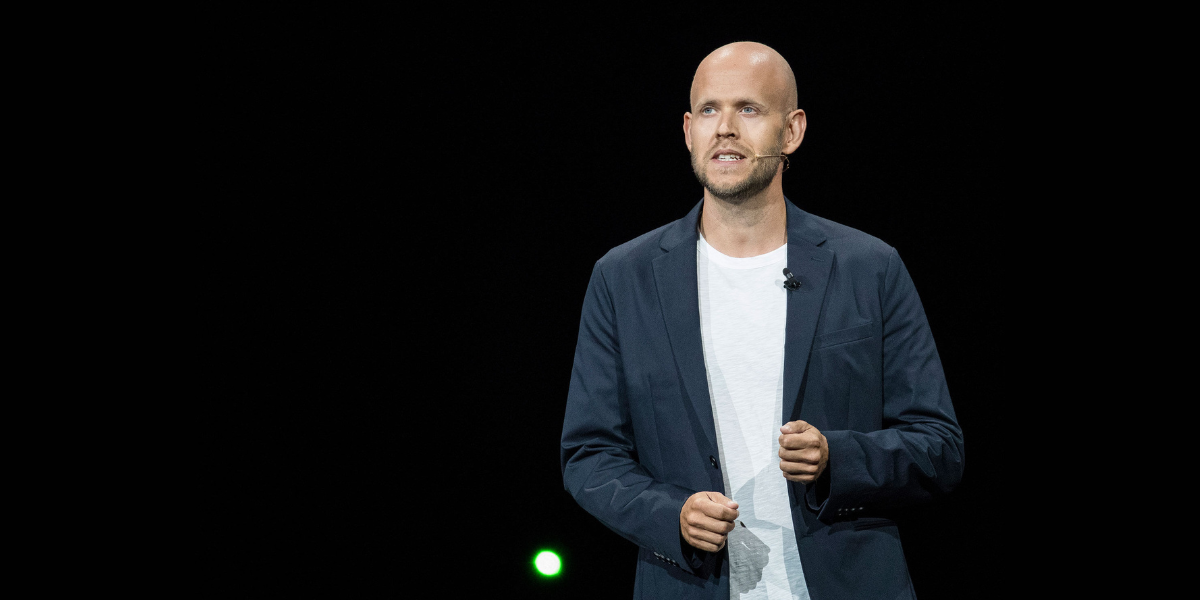Daniel Ek on Choosing Impact Over Happiness and Why That Matters for Every Entrepreneur

“Since when is life about happiness? It’s about impact.”
That’s what Daniel Ek, founder and CEO of Spotify, told Uber’s Dara Khosrowshahi when Dara was on the fence about taking the job as CEO during one of Uber’s most turbulent moments. That single line didn’t just change Dara’s career, it revealed a philosophy that defines Ek’s approach to life, leadership, and legacy.
In a deep and candid conversation with David Senra on the Founders Podcast, Daniel Ek pulled back the curtain on how he thinks. What emerged was more than a startup story, it was a blueprint for the wantrepreneur ready to cross the threshold into founderhood. It was a study in long-term thinking, principled leadership, and the emotional discipline required to build something that matters.
Here are the big takeaways for entrepreneurs.
1. Impact First. Happiness Follows.
Many founders chase happiness as a North Star — the elusive reward for surviving startup chaos. Ek flips that model.
“Happiness is a trailing indicator of impact. Truly sustained happiness comes from solving hard problems that matter.”
He’s not talking about dopamine hits or social validation. For Ek, fulfillment comes from doing the hard, uncomfortable work that leaves a dent in the world. Impact is personal, yes — but it requires moving past contentment and asking harder questions: Where am I coasting? Where am I needed?
When Ek encouraged Dara to take on Uber, it wasn’t about career growth. It was about refusing to settle. “He wasn’t unhappy,” Ek said. “He was content. And sometimes contentment is the real enemy.”
2. The Hardest Startup Problem? Finding Yourself.
The most overlooked skill in entrepreneurship isn't product design, fundraising, or hiring.
It's self-knowledge.
“The hardest single thing for a founder is finding yourself.”
Ek spent years trying to emulate archetypes — Jobs, Bezos, Schultz — until he realized he was none of them. “Every time I tried to imitate them, I walked away disillusioned.” Eventually, he embraced what made him different: he wasn’t the charismatic hard-charging solo visionary. He was a coach. A builder. A systems thinker.
Lesson for founders: Stop trying to be the next anyone. Build the company that feels natural to you.
“Spotify is a reflection of me. That’s why it works. And every founder has to find what that means for them.”
3. The Power of Obsession, Reflection, and the Long Game
After selling his first company at 22 and hitting his “magic number” of $10 million, Ek was supposed to be happy. Instead, he spiraled into what he now calls the most depressed period of his life.
“I had everything I thought I wanted. And it felt incredibly hollow.”
That was when he realized: consuming isn’t enough. Making status plays at nightclubs wasn’t enough. What he craved was challenge. Mission. The opportunity to build something enduring.
That clarity birthed Spotify — a company he’s been running for nearly two decades with obsessive focus.
“For the first 15 years, I literally couldn’t care about anything else.”
4. You Don’t Have to Be Steve Jobs. There Are Many Founder Archetypes.
We idolize a narrow set of founder personalities — the intense, often abrasive, product-obsessed lone wolf. But Ek insists: that’s not the only way.
“There’s this myth that there’s one way to run a company. That’s bullshit. Advice is useless unless it’s tied to who you are as a person.”
Ek’s style is collaborative, reflective, and deeply rooted in trust. “I might be a better coach than player,” he says. That doesn’t make him less effective. It makes him more sustainable. More scalable.
His framework for success? Know your game. Play it well.
5. Trust Is the Most Underrated Economic Force
Throughout the conversation, Ek returned to one quiet theme: trust.
“Trust is the reason organizations break down. If you had 100% trust, you wouldn’t need bureaucracy.”
Trust isn’t just a moral value. It’s operational fuel. It’s how he scaled Spotify without losing its soul. It’s how he managed to hire great people, let them lead, and still steer the mission.
Ek’s lens on trust also explains his surprising tolerance for “crazy people”:
“I judge people by their best idea, not their worst. Because sometimes brilliance comes in short bursts.”
6. Quality Is Never an Accident. It’s a Daily, Intelligent Effort.
One of Ek’s favorite quotes comes from John Ruskin:
“Quality is never an accident. It is always the result of intelligent effort.”
From the UX of Spotify to the tea ceremonies he observed in Japan, Ek is fascinated by those who pursue excellence through obsession — even if it’s 0.1% better at a time.
And he warns: greatness gets evaporated by distraction. You must protect your time, your energy, and the quality of the work — even if it means saying no to everything else.
Final Word: Choose the Right Game
One of the most powerful lines in the conversation came from philosopher Kwame Appiah:
“The challenge in life is not to figure out how best to play the game. The challenge is to figure out what game you’re playing.”
For Daniel Ek, the game was never about becoming a billionaire. It was about solving hard problems with enduring impact. That’s why Spotify exists. That’s why he keeps building. That’s why he’s still obsessed.
If you’re a wantrepreneur reading this, maybe you don’t need a new idea or a new tool.
Maybe you need a new lens.





